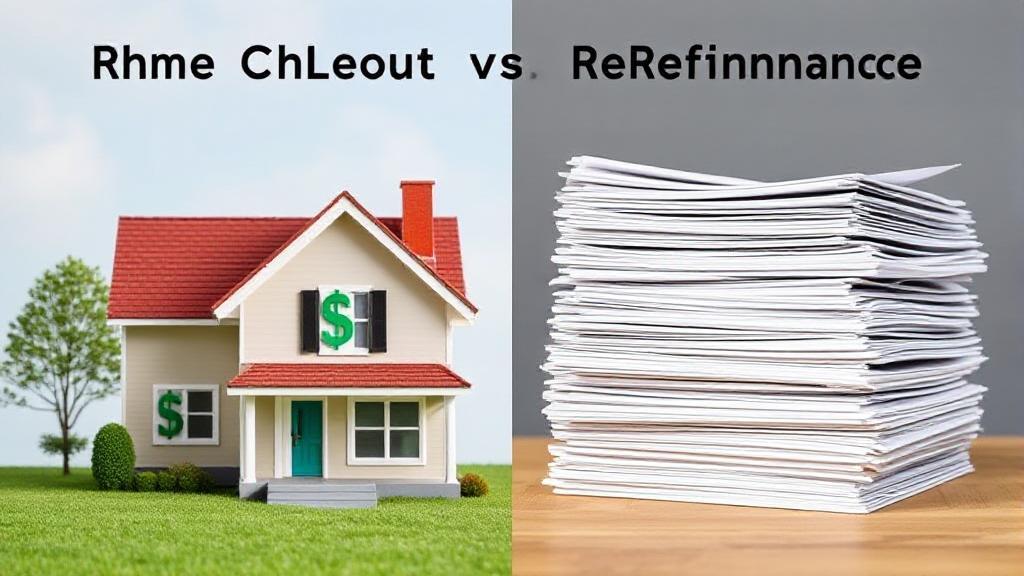Understanding the Basics
A home equity loan, sometimes called a "second mortgage," allows you to borrow against your home's equity while keeping your original mortgage intact. You receive a lump sum payment and make regular monthly payments over a fixed term.
With cash-out refinancing, you replace your existing mortgage with a new, larger loan and receive the difference in cash. This option essentially restarts your mortgage terms with potentially different rates and conditions.
Key Features and Differences
Interest Rates
- Home Equity Loans: Generally have higher interest rates and typically come with fixed rates, making monthly payments predictable
- Refinancing: Often offers lower rates, especially in a falling rate environment, with both fixed and adjustable-rate options available
Closing Costs
- Home Equity Loans: Lower closing costs, typically 2-5% of the loan amount
- Refinancing: Higher closing costs, usually 3-6% of the total loan amount
Term Length
- Home Equity Loans: Shorter terms available, often 5-15 years
- Refinancing: Usually 15-30 years, resetting your mortgage timeline
When to Choose Each Option
Home Equity Loans Are Better When:
- Your current mortgage has a low interest rate
- You want to keep your original mortgage terms
- You need a specific amount for a particular purpose
- You prefer predictable, fixed payments
Refinancing Is Better When:
- Interest rates are significantly lower than your current rate
- You want to consolidate multiple debts
- You plan to stay in your home long-term
- You want to change your loan terms (e.g., from adjustable to fixed-rate)
Tax Implications
Note: The Tax Cuts and Jobs Act of 2017 changed the rules for deducting interest on home equity loans and refinancing.
The interest on both home equity loans and refinancing may be tax-deductible, but there are limitations, especially on home equity loans not used for buying, building, or substantially improving the home. For more information, visit the IRS website.
Risk Considerations
Both options use your home as collateral, meaning failure to repay could result in foreclosure. Consider your local real estate market conditions and future home value projections.
Example Payment Calculation
Making Your Decision
Consider these factors when choosing:
- Current interest rates
- Your existing mortgage terms
- Intended use of funds
- Length of time you plan to stay in your home
- Total costs (including fees)
- Your credit score
- Current home equity
Alternative Options
Before committing to either option, consider alternatives such as:
- Home Equity Line of Credit (HELOC)
- Personal loans
- Government-backed renovation loans
- Saving and paying cash
For personalized advice, consider consulting with a qualified financial advisor or visiting resources like Bankrate or NerdWallet for more information.
